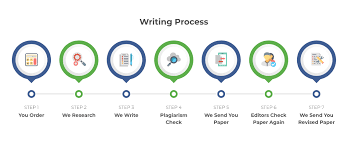ResourcesRead/review the following resources for this activity: Textbook: Chapter 3 Minimum of 1 library resource for initial postIntroductionEthics in research is of paramount importance and most modern researchers and institutions go to great lengths to follow appropriate guidelines. That being said there was a time in the not too distant past that ethics were an afterthought. Also, there are still many gray areas and some unscrupulous individuals. So let’s explore some examples of poor ethics in research.Initial Post InstructionsConduct internet or library research, and locate an example of unethical research. If you need some inspiration chapter three of your textbook is filled with examples but don’t use them for your post. After you find an example, describe the study for the other students and discuss what the ethical issues were in the study. Finally, if appropriate, suggest another method to conduct the research in an ethical manner.Secondary Post InstructionsWhen you reply to your fellow students compare and contrast your study and theirs. Also, fill in any gaps that the student may have in the application of ethics.Writing Requirements In addition to one initial post, respond to at least two peers. Initial Post Length: minimum of 250 words Secondary Post Length: minimum of 200 words per post Using APA format, incorporate appropriate in-text citation(s) referring to the academic concept with corresponding references page for the initial post.Grading and AssessmentMeeting the minimum number of postings does not guarantee an A; you must present an in-depth discussion of high quality, integrate sources to support your assertions, and refer to peers’ comments in your secondary posts to build on concepts.Course Learning Outcome(s): 1, 5, 6, 7, 81. Understand the language of research.5. Develop verbal and written communication skills6. Learn computerized statistical analysis and presentation7. Critically evaluate research, being able to differentiate shoddy research from good research8. Be able to evaluate programming, therapies, policy, etc.
by Classy Writers | Jun 9, 2020 | Law
ResourcesRead/review the following resources for this activity: Textbook: Chapter 3 Minimum of 1 library resource…
A professional Academic Services Provider
Superb Writers Classic Essays Prioritizes Quality, Accountability, Professionalism, and Timely Delivery
At Superb Writers, we have qualified experts including writers providing quality papers at all times. The company seeks to aid learners all through the education process while easing their journey. Customer satisfaction is our emblem, and as the name suggests, our customers have a SUPERB experience with us. We purpose to help learners comprehend their classwork and homework to attain high grades. Our writers, editors, managers, customer service personnel are friendly; hence, providing a conducive environment to interact with you; the client. We offer guidance across various tasks including essay wring, article writing, thesis proposals, dissertations, coursework, and project management among others.Our Core Values
1. Professionalism: Our staff are highly trained to accommodate every personality. We handle our clients respectfully, understanding the fact that we are here because of you.
2. High-Quality: As typified by our name, we provide quality services as desired by our clients.
3. Confidentiality We safeguard what we share with our clients; hence, information shared remains confidential.
Assurances
4. Quality Assurance: Our qualified writers are clustered as per their expertise and tasks matched with the respective fields. Moreover, we have the current software to check paper quality; thus, delivering error free products.
5. Money Back Policy: As a client-oriented service, we offer 100% refund for the following: if we received a double payment from you; if you placed similar orders twice (or more) and paid for all of them; the writer has not been assigned; you asked to cancel the order within 20 minutes after placing it; an e-Check payment has been sent (the Dispute Manager will contact you accordingly). Other cases involve a comprehensive investigation by the Dispute Department and feedback given within 24 hours. We value our customers; therefore, the process will be fair, fast, and precise.
5 .Free Revisions: You can request for revisions at no additional cost. However, this does not entail complete change of the initial order instructions and if it is not past ten days upon your approval.
6. 24/7 Customer Support: Our support team is always available to help when needed.
Process of Placing an Order
NOTE: If you have any question, always contact our support team before the commencement of your project. ALL THE BEST”:










Recent Comments